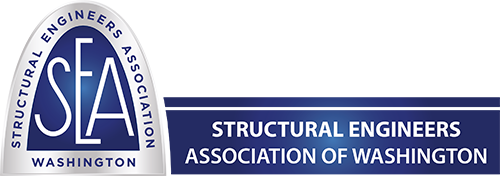Date: Thursday, July 22, 2021 - Add to Calendar
Time: 12:00PM - 1:00PM PST
Location: GoToWebinar
Cost: SEAW Members and Students - FREE! / Non-Members - $15
After registering, you will receive a confirmation email containing information about joining the webinar.
Presentation: Hollow-Core Floors in Earthquakes - Assessment & Retrofit
Past research has indicated that precast concrete hollow-core floors in buildings are susceptible to non-ductile failure modes when subjected to earthquake deformations. Damage to buildings containing hollow-core floors in Wellington, New Zealand, during the 2016 Kaikoura Earthquake prompted the need to understand better the behavior of hollow-core floors and enable those with limited drift capacity to be retrofitted or replaced. This presentation will summarize provisions in the New Zealand Seismic Assessment Guidelines capturing three potential failure modes for hollow-core floors: loss of seating, positive moment failure, and negative moment failure. Ongoing research in New Zealand on retrofit approaches for hollow-core floors will also be discussed.
Presenter: Ken Elwood, Professor of Earthquake Engineering, Department of Civil and Environmental Engineering, University of Auckland
Prof. Ken Elwood serves as the Associate Director of QuakeCoRE: New Zealand Centre for Earthquake Resilience, a multi-institution Centre of Research Excellence funded by the New Zealand Government. Ken joined the University of Auckland in 2014 after 11 years on faculty at the University of British Columbia, Canada. Ken received his PhD in Civil Engineering from the University of California, Berkeley in 2002, M.S. from the University of Illinois at Urbana-Champaign in 1995, and BASc from the University of British Columbia in 1993. Ken has served as a member of several international code committees and currently sits on the American Concrete Institute Building Code (ACI 318) Committee. He has also chaired a committee for New Zealand Government to set guidelines for the seismic assessment of buildings with precast floors.



